#Virus crisis gives throwaway plastic a new lease on life
“#Virus crisis gives throwaway plastic a new lease on life”
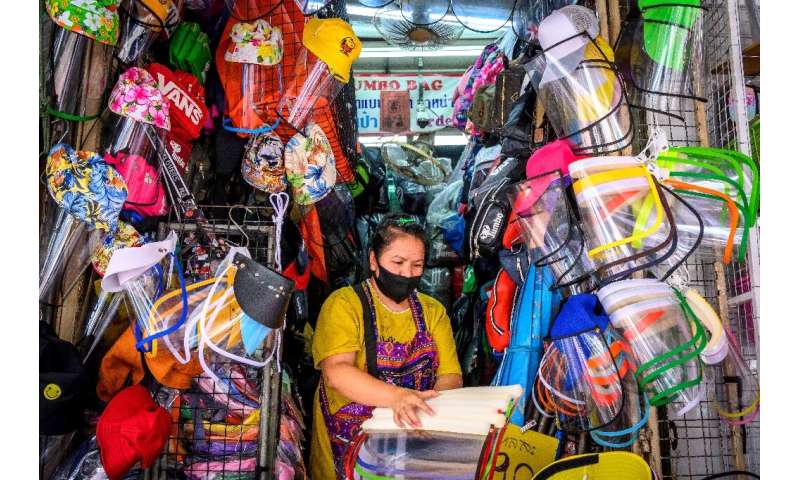
Just when you thought it was beyond the social and environmental pale, single-use plastic is making a comeback, be it for throwaway facemasks, gloves or shrink-wrapped vegetables.
Largely to blame is the coronavirus and the response to ward it off—the masks, gloves and other plastic-based items, many of which are now ending up in our oceans—already strewn with the slow-to-degrade detritus of a constantly growing industry.
‘Magic’ plastic
Masks, visors, gloves or screens … all are crucial accessories to keep COVID-10 at bay.
Other uses are manifold—from hairdressers using throwaway aprons to UN recommendations that airline food be distributed in blister packs to the bubble tents that allow some relatives to visit elderly and sick loved ones, touching them through a transparent plastic film.
Even California has had partially to lay aside its green credentials by dropping for two months a ban on single use plastic bags. In Saudi Arabia, some retail centres insist customers don wear-and-throw gloves.
Industry has been quick to highlight plastic’s versatility. In March, one French plastics group stated that “without single use plastic you will no longer have wrapping to protect your food against germs.”
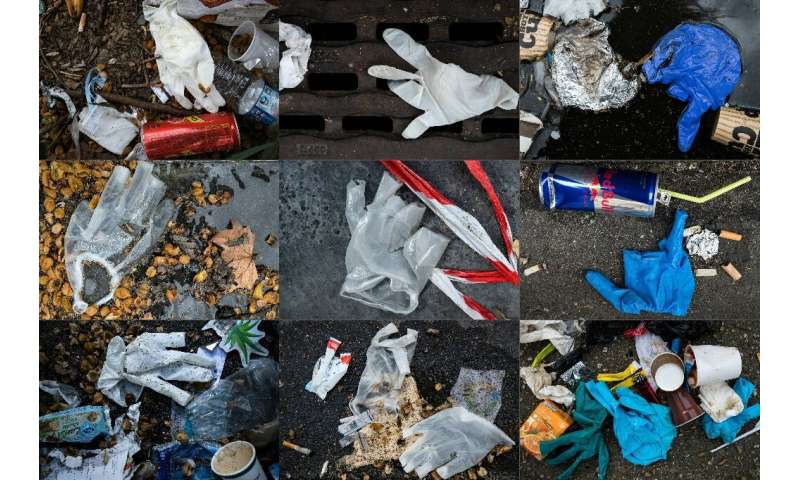
In the United States, the Plastics Industry Association was from March 20 urging that its activities be considered “essential” during lockdown.
“Single-use plastics can literally be the difference between life and death,” opined the lobby group’s president Tony Radoszewski, noting that items such as ventilator machines have components made of single-use plastics.
He added that “sanitary and convenient” single use plastic bags help protect supermarket employees “from whatever is lurking on reusable bags.”
According to a OpinionWay-Sodastream poll, 66 percent of French people say they prefer to get packaged food right now.
France’s Naturalia organic food retail chain says it has seen recent sales of unpackaged items—which had previously been rising 20 percent annually—slump.
“Our customers turned to packaged produce,” says the chain’s general director Allon Zeitoun. “We have yet to get back to pre-crisis levels” of demand for unpackaged goods.
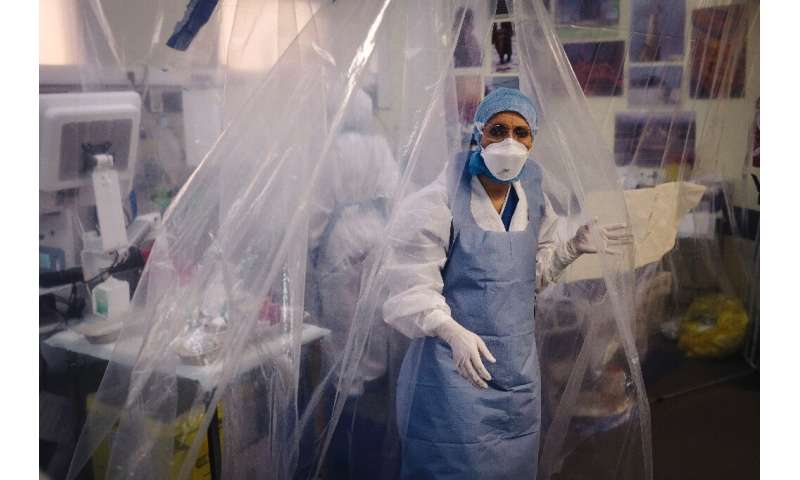
Hygiene not guaranteed
Yet plastic does not guarantee hygienic protection. For the World Health Organization, washing one’s hands is more effective than wearing gloves.
According to a study in the US journal NEJM, coronavirus can remain for up to three days on plastic and for 24 hours on cardboard.
“For medical uses we don’t have anything better than single use,” says Raphael Guastavi, from France’s environmental and energy management agency Ademe.
But he adds that for consumers, reusable packaging “does not pose a sanitary problem” and says to say otherwise is simply “lobbying”.
Guastavi says he is “reassured to see European lawmakers not wanting to give ground” on the argument.
Kenya is also standing firm after in June banning all single use plastic, including water bottles, in protected areas.
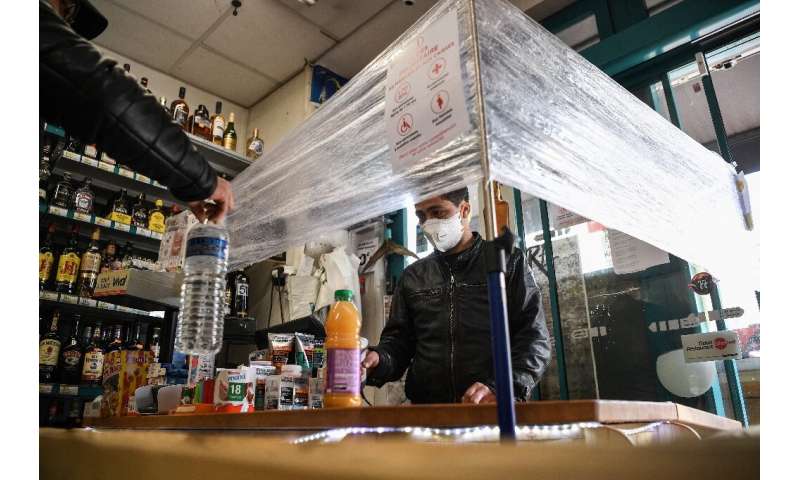
Waste
What is unarguable is that countless pavements and beaches are strewn with masks and gloves from Hong Kong to Gaza and beyond.
The World Wildlife Fund, which estimated last year there are 600,000 tonnes of plastic waste polluting the Mediterranean, has warned about changing views about plastic.
“The cultural battle against single-use plastic seemed to have been won. Today, a breach has been opened and we shall have to respond,” says Pierre Cannet of WWF France.
And many of the safety products whose use has boomed thanks to the health crisis are hard to recycle.
“A mask is not easy to recycle. Public authorities’ general approach is to put it with household rubbish for incineration, which in our view is the best situation,” says Arnaud Brunet of the Bureau of International Recycling.
In the future “perhaps we shall be able to imagine a special collection (for plastic goods) or in pharmacies. But we aren’t there yet,” he adds.
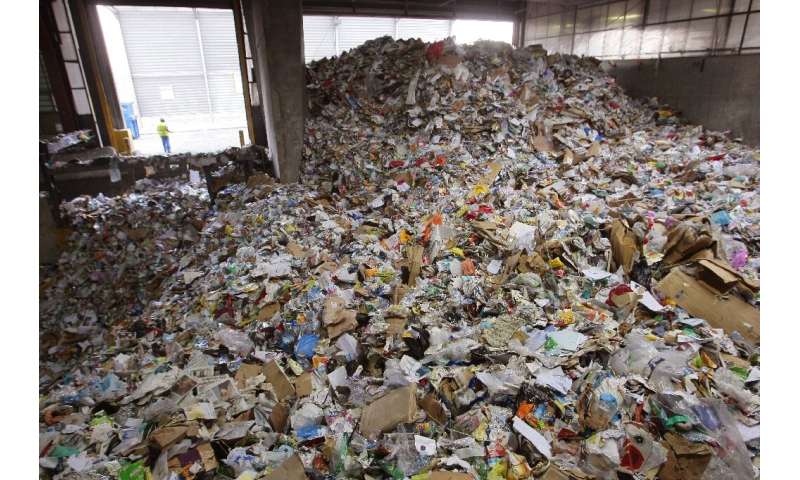
Recycling in a rut
Overall, the recycling industry is in something of a rut not least because of cheap oil—which is what plastic is made from—making new plastic cheap.
The European Union wants to see 25 percent of material used in plastic bottles recycled by 2025 and lift that to at least 30 percent by 2030. The dumped remainder will go on taking centuries to degrade.
“COVID-19 does not cast doubt on the strategy of moving towards a circular economy and more recyclability,” says Eric Quenet, from the PlasticsEurope federation.
Difficult year ahead
Some 350 million tonnes of plastic are produced annually—about half in Asia, 19 percent in North America and 16 percent in Europe.
Overall production is rising at a moderate yet regular pace and demand is surging for personal protective gear even if volume in that sphere is modest compared with that for the auto or construction industries.
What is certain is that, for the first time since 2008, the plastics sector is expecting to endure a worse year than the previous one amid the economic fallout from confinement.
© 2020 AFP
Virus crisis gives throwaway plastic a new lease on life (2020, June 18)
retrieved 18 June 2020
from https://phys.org/news/2020-06-virus-crisis-throwaway-plastic-lease.html
This document is subject to copyright. Apart from any fair dealing for the purpose of private study or research, no
part may be reproduced without the written permission. The content is provided for information purposes only.
If you want to read more Like this articles, you can visit our Science category.
if you want to watch Movies or Tv Shows go to Dizi.BuradaBiliyorum.Com for forums sites go to Forum.BuradaBiliyorum.Com
